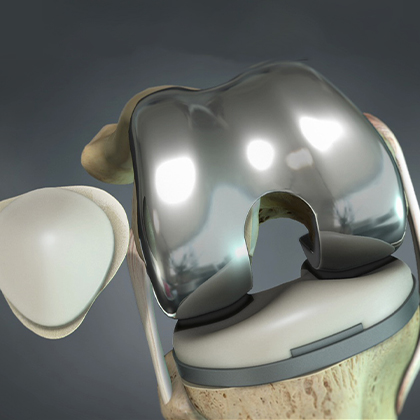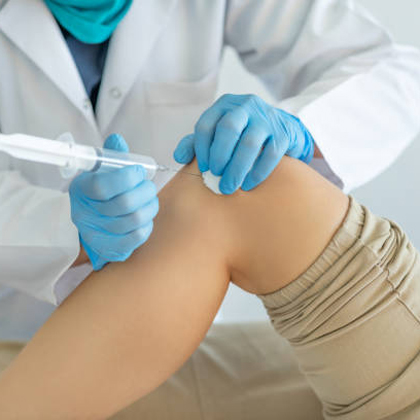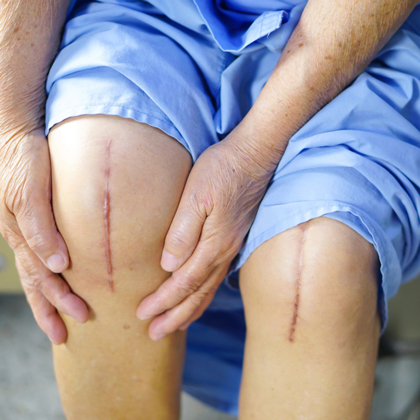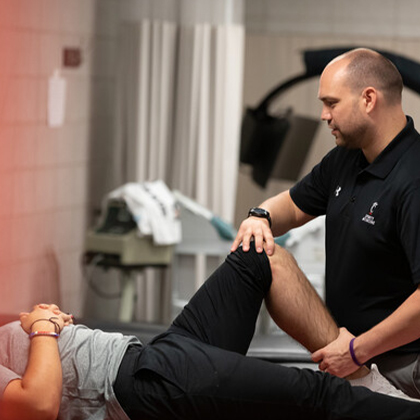
Meniscal Injuries
Meniscal injuries are one the most common knee injuries. While it can happen to anyone, sportspersons (particularly those who play contact sports) are especially susceptible to these injuries. However, it may also be seen in older adults with degenerative disease.
Menisci are two crescent shaped pads of cartilage that sit inside each knee joint. They play a a crucial role in stabilising the knee, absorbing shock while walking or running & easing movement of the knee joint.
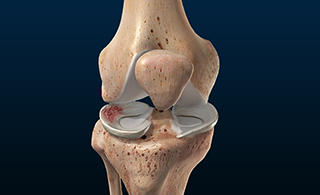
Meniscal tears are classified based on their shape & location.
- Horizontal : These are parallel to the flat top of the shinbone. These are often seen in people with degenerated knee joint.
- Longitudinal or vertical : These tears are parallel to the long axis of the meniscus & perpendicular to the top of shinbone
- Radial: Radial tears are perpendicular to top of the shinbone & also the long axis of the meniscus.
- Complex : This is a combination of horizontal & longitudinal tears.
- Displaced : Displaced tears involve complete detachment of a piece of meniscus.
- Flap: These are horizontal tears with partially detached fragments.
It may take a day or a little more for symptoms like pain & inflammation to show up when a person has torn his or her meniscus. Other common symptoms include:
- A popping sensation
- Swelling or stiffness
- Pain while twisting or rotating your knee
- Feeling of the knee being locked in place
- Difficulty straightening the knee
Factors that may increase one’s risk of meniscal injury are:
- Gender : It is more common in men as compared to women
- Age : Older than 40 years
- Playing contact sports like football
- Being in a job that requires squatting or bending
To diagnose a meniscal tear, the doctor will first understand the patient’s medical history & perform a thorough examination of the joint.
During the physical exam, the orthopaedic surgeon will check for tenderness, range of motion & strength.
Apart from this, the doctor may also recommend an X Ray & an MRI to confirm a diagnosis.
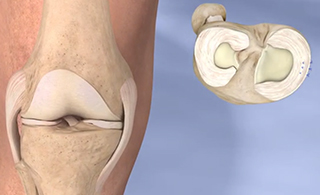
Treatment of meniscal tear depends on the location of the injury, along with the patient’s age, general activity level & his or her symptoms.
- Non Invasive Treatments:
- RICE
- Nonsteroidal Anti-inflammatory Drugs
- Steroid Injections
- Biologic injections
- Physiotherapy
- Surgical Treatments:
- If non surgical treatments fail to provide relief to the patient, the doctor may recommend a minimally invasive surgery. This procedure known as arthroscopic surgery involves making 2-3 tiny incisions & inserting a camera & surgical instruments to repair or trim a meniscal tear.
- At Elite Orthopaedics, we offer the best treatment for meniscal tears. Our doctors are experienced & skilled in providing best treatments for knee injuries.

+91 123456789
eliteOrthopedics@gmail.com
Yashoda Hospitals Hitec City




